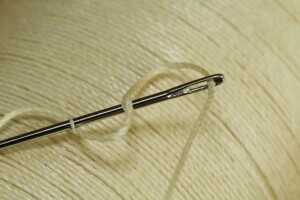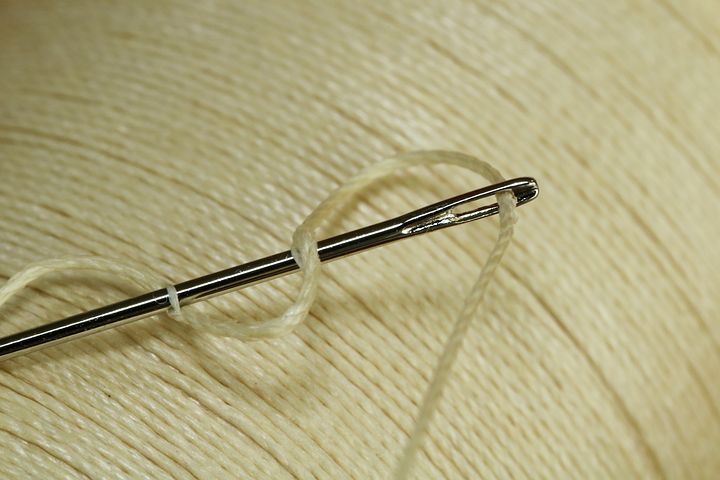Not Even a Thread or a Sandal Strap
 Refusing to take a thread or a sandal strap.
Refusing to take a thread or a sandal strap.
Abram was an honest man. Sometimes. And sometimes? Not so much.
This story of Abraham’s honesty in “not even a thread or a sandal strap” is right between two instances of dishonesty. Those instances were the times Abram feared for his life, so he didn’t tell the whole truth.
 Is honesty the best policy?
Is honesty the best policy?
When Abram and Sarai traveled to Egypt, he asked his wife to tell people they were siblings. They were siblings (same father, different mother), but they were also husband and wife. The king of Egypt took her to his palace. Everyone in his palace (including the king himself) became ill. I don’t know how the king found out the diseases were because of Abram, but he did. And he told Abram and Sarai to leave Egypt. They did.

Eight chapters later, Abraham lies again. This time he and Sarah (their names are changed by God) are in Gerar. Same story, same lie: we are siblings.
Abimelech (the king) takes Sarah to his palace (she had to be a beautiful woman for this to happen the second time!). Fortunately for Abraham, Sarah, and Abimelech, God told Abimelech the whole truth and instructed him to “return the man’s wife” to him, which he did. Abimelech chastises Abraham for his dishonesty, and this is Abraham’s reply:
“I did it because I thought, ‘There is no fear of God at all in this place, and they will kill me because of my wife.’ 12 Besides, she is indeed my sister, the daughter of my father though not the daughter of my mother, and she became my wife. 13 And when God caused me to wander from my father’s house, I said to her, ‘This is the kindness you must do me: at every place to which we come, say of me, “He is my brother.” ’ ”
A thread or a sandal strap
Right between those two episodes of dishonesty, Abraham’s nephew Lot is captured by the Sodomites. Abraham rescues Lot and takes captives of the Sodomites. The king of Sodom tells him, “You may keep all these things for yourself; just give me my people who were captured.”
Abraham’s reply speaks of honesty down to the finest point. “I will not even keep a thread or a sandal strap so that you cannot say, ‘I made Abram rich.'” He does not want to be accused of becoming rich by stealing from others.
I love this story about Abraham, but it’s one we don’t hear as often as his other episodes and escapades. When Abram/Abraham lied about his relationship to his spouse, he did it because he was afraid for their lives (not saying that’s okay). When he refused to take even one shoelace from the king, he did that because he didn’t want to be accused of selfishness and hoarding.
The only thing he will keep, he says, is the food his young men have already eaten [rather hard to return that, you think?!]. Everything else is given back. He doesn’t want any plunder; he isn’t going to get rich on someone else’s lack or luck.
 Accounting for every thread
Accounting for every thread
Basically, Abram says he wants to account for every single penny given to him by God. Nobody can accuse him of cheating or gambling. What he has, he earned. What a reputation to have!
It’s a lesson for all of us. When we are careful not to take as much as a thread or a sandal strap, we are honest before men. What we have and own is a result of working with our hands and not the result of cheating or taking advantage of others.
Folks knew about Abraham. He had a reputation. It’s the same with us. We might think we are fooling others, but the truth has a way of coming out. When our goal is to be so honest, we will have principles in place. When we won’t take even a thread or the strap of a sandal that doesn’t belong to us, we are living a life of integrity and honesty.

Photo attribution: Sweet Publishing through Free Bible Images; Pixabay.








